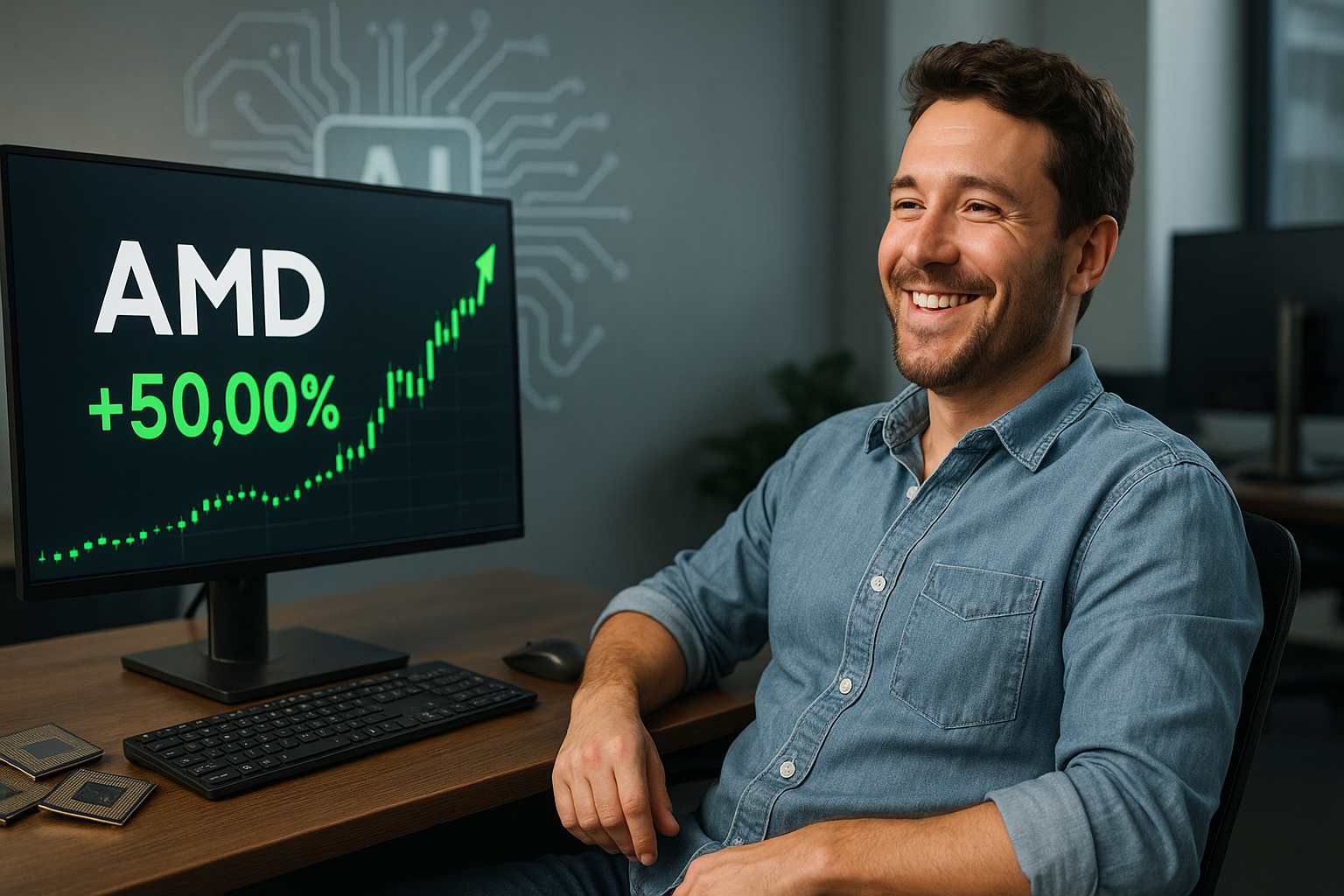So here's a trader's confession that resonated with me this morning: "I've been buying AMD since sometime in 2023 and by market open I was up about 50%. Happy to sell it now."
There's something refreshingly honest about that statement. In a market where everyone's supposedly diamond-handing their way to generational wealth, someone actually took profits. Imagine that.
This particular investor's AMD journey mirrors what many have experienced with semiconductor stocks in the AI gold rush. They weathered the "being down on this stock a long time" phase (the character-building part of investing that financial influencers conveniently edit out of their success stories) before catching the upswing.
What strikes me most is the psychological clarity. "I have a lot of exposure in AI already and don't mind securing some profit here." That's the kind of sentence that wouldn't get many likes on FinTwit, but represents actual financial wisdom. Taking chips off the table (semiconductor pun intended) when a sector gets frothy isn't admitting defeat—it's acknowledging reality.
The AI semiconductor trade has created what I call the "lottery ticket effect." Everyone knows someone who's made obscene returns on Nvidia, AMD, or some AI-adjacent company, creating powerful FOMO that makes selling feel like failure. But markets don't care about your feelings or your cousin's brother-in-law who turned $10K in Nvidia options into a down payment on a house.
Our anonymous investor here actually displays remarkable self-awareness: "Maybe I'll buy back in with my principal at a lower price. Who knows." That "who knows" is perhaps the most honest phrase in investing. Because nobody does know. Not the Wall Street analysts, not the Reddit threads, not even AMD's management team (though they might have better guesses).
The semiconductor cycle has historically been brutal—even more so than other cyclicals—with massive booms followed by gut-wrenching busts. AI might change the amplitude or frequency of these cycles, but it's unlikely to eliminate them entirely. Today's "I can't produce enough chips" often becomes tomorrow's "we have too much inventory."
This isn't to say AMD won't continue its run. Lisa Su is one of the most impressive CEOs in tech, and the company's competitive position against Intel has completely transformed over the past five years. Their MI300 chips are gaining real traction in the AI acceleration space, potentially breaking Nvidia's near-monopoly. If "the numbers are accurate in today's news," as our investor notes, the fundamental story remains compelling.
But the sign of investment maturity isn't holding forever—it's knowing when the risk/reward calculation has shifted for your particular situation. Sometimes the right move is to sell a bit, sleep better at night, and leave some future gains on the table.
There's an old trading floor saying: "Bulls make money, bears make money, pigs get slaughtered." Our AMD investor isn't being a pig. In a market environment where seemingly everyone is trying to squeeze every last penny out of the AI trade, that's rather refreshing.
And hey, "not taking any more risk with AMD lol" might be the most reasonable investment thesis I've encountered all week. Sometimes a well-timed "lol" contains more financial wisdom than a 50-page analyst report.
